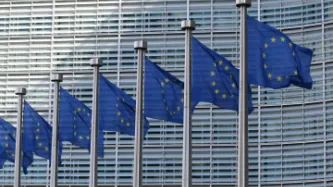Search
Content type: News & Analysis
Today, the European Commission has concluded its Phase II in-depth review of the proposed acquisition of the health and fitness tracker Fitbit by Google, deciding that the merger can go through. While we welcome the commitments put forward by Google to mitigate some risks of compromising individuals' rights and competition, PI considers the effects of this merger will further strengthen Google's capacity to exploit our data.
On 15 June 2020, Google formally notified the European Commission of…
Content type: Advocacy
An interoperability requirement for “gatekeeper” firms would:
give a fair chance for competition on the merits of new services.
contribute to meeting the three key objectives of the Commission’s February 2020 Digital Future Communication: ensuring technology works for people; a fair and competitive economy and an open, democratic and sustainable society.
As the letter notes, "major digital competition reviews over the last two years [...] have recommended interoperability requirements.…
Content type: Long Read
An edited version of this article was originally published on the EDRi website in September 2020.
Introduction
Monopolies, mergers and acquisitions, anti-trust laws. These may seem like tangential or irrelevant issues for privacy and digital rights organisations. But having run our first public petition opposing a big tech merger, we wanted to set out why we think this is an important frontier for people's rights across Europe and indeed across the world.
In June, Google notified the…
Content type: Explainer
The lead author of this piece is Elettra Bietti, a doctoral student at Harvard Law School and volunteer for Privacy International
Network effects
Social media companies and other digital business models are driven by so-called network effects. A network effect (also called a network externality) is a service’s propensity to improve functionally as the number of people using it and the amount of data collected through it increases. For example, as the number of Facebook users increases, Facebook…
Content type: News & Analysis
No doubt this is turning out to be a summer full of news about internet companies' digital dominance.
In June, Google notified the European Commission of its plan to acquire Fitbit - a plan that we immediately identified would raise grave concerns for our well-being as consumers.
Today the European Commission has made its decision. And it's good news.
The European regulator has decided to undertake a detailed 'Phase 2' investigation, rather than just green light Google's plans, voicing also the…
Content type: Advocacy
Introduction
In February 2020, the Australian Competition and Consumer Commission (ACCC) commenced an investigation into the proposed acquisition of Fitbit by Google, which was originally announced in November 2019.
In March 2020, we made a submission to the ACCC, arguing that the acquisition would very likely have onerous implications for both consumers and markets. We asked the Australian regulator to apply strict scrutiny and not let hisory once again repeat itself. We concluded that the…
Content type: Long Read
Monday, 16 June 2025
It’s 7:33 am. Lila’s GoogBit watch vibrates. “You got 6 hours and 57 minutes of sleep last night, including 2 hours and 12 minutes of deep sleep”, the watch reads. “In total, you tossed and turned for 15 minutes only”. Taking into account Lila’s online browsing activity, her sleep pattern, the recent disruptions in some of her other biorhythms, as well as her daily schedule, GoogBit watch has calculated the very best minute to wake her up.
Content type: Call to Action
Google wants to know everything about you.
It already holds a massive trove of data about you, but by announcing its plans to acquire the health and fitness tracker company Fitbit, it now clearly wants to get its hands on your health too. We don’t think any company should be allowed to accumulate this much intimate information about you. This is why we’re trying to stop its merger with Fitbit.
Google and Fitbit need the European Commission’s approval before they can merge. The merger would…
Content type: News & Analysis
Yesterday, Amazon announced that they will be putting a one-year suspension on sales of its facial recognition software Rekognition to law enforcement. While Amazon’s move should be welcomed as a step towards sanctioning company opportunism at the expense of our fundamental freedoms, there is still a lot to be done.
The announcement speaks of just a one-year ban. What is Amazon exactly expecting to change within that one year? Is one year enough to make the technology to not discriminate…
Content type: News & Analysis
This week, we read that a former Apple contractor who blew the whistle on the company’s programme to listen to users’ Siri recordings has decided to go public, in protest at the lack of action taken as a result of the July 2019 disclosures. The news adds to a series of revelations that have been reported over the past months.
While the issue raises serious questions regarding the compatibility of such practices with data protection laws, at the same time, it highlights a wider problem that…
Content type: Long Read
Photo by Cade Roberts on Unsplash
For those of you who don't spend the most productive part of your day scanning the news for developments about data and competition, here's what has been going on in the UK since summer 2019.
Basically, the UK competition authority started an investigation into online platforms and digital advertising last summer, and issued their preliminary findings in December 2019, concluding that Facebook and Google are very powerful in the search engine and social media…
Content type: Advocacy
For a long but fun analysis of the current competition and data state of play in the UK, click here.
Background
PI broadly welcomes the CMA’s interim findings, many of which correspond with issues of longstanding concern to PI and with the points raised in our response to the CMA’s Statement of Scope.
This includes the indication that Google and Facebook have a dominant or strategic position in major elements of the digital advertising market which can -at least, partially- be attributed to the…
Content type: Advocacy
Background
In February 2020, the Australian Competition and Consumer Commission (ACCC) commenced an investigation into the proposed acquisition of Fitbit by Google, which was originally announced in November 2019.
Google, whose parent company, Alphabet, in 2018, generated 85% of its $136.22 billion in revenue from delivering targeted advertisements, has a past of competition law infringements in the European Union. Fitbit is a company that produces and sells health tracking technologies and…
Content type: Advocacy
Consumers benefit from the existence of competitive markets, in which they can freely choose among a wide range of products and services. Competition policy plays an important role in this regard by ensuring that competition is not disrupted in a way that can harm consumers directly (e.g. leading to price increases or less choice) or indirectly (e.g. weakening competition as a process by hampering the ability of firms to compete on the merits).
Content type: News & Analysis
Image Source
On 10 October 2018, the US Senate Committee on Commerce, Science, and Transportation, will convene a hearing titled “Consumer Data Privacy: Examining Lessons From the European Union’s General Data Protection Regulation and the California Consumer Privacy Act".
The Senate will hear from:
Dr. Andrea Jelinek, Chair, European Data Protection Board
Mr. Alastair Mactaggart, Board Chair, Californians for Consumer Privacy
Ms. Laura Moy, Executive Director and Adjunct…
Content type: Advocacy
Privacy International encourages the European Commission to consider ways to reform or at least re-interpret competition regulation to address the data protection implications and the broader societal challenges posed by the exploitation of data by big corporations. This includes, for example, systematic consideration of data protection issues (including though consultation with relevant data protection authorities and organisations protecting privacy and consumer rights) when assessing mergers…
Content type: Explainer
In the digital economy there is a trend towards corporate concentration. This is true for social media platforms, search engines, smart phone operating systems, digital entertainment, or online retailers. Meanwhile, the way in which market dominance is measured traditionally does not always capture the extent of their control: firstly, their products and services are often “free” and secondly, it’s often not clear in which “markets” and “sectors” these companies operate, since there is so much…
Content type: Report
Privacy International welcomes the opportunity to file these comments in advance of the Federal Trade Commission’s public hearings on competition and consumer protection in the 21st century.
Content type: Impact Case Study
What is the problem
Business models of lots of companies is based on data exploitation. Big Tech companies such Google, Amazon, Facebook; data brokers; online services; apps and many others collect, use and share huge amounts of data about us, frequently without our explicit consent of knowledge. Using implicit attributes of low-cost devices, their ‘free’ services or apps and other sources, they create unmatched tracking and targeting capabilities which are being used against us.
Why it is…

















